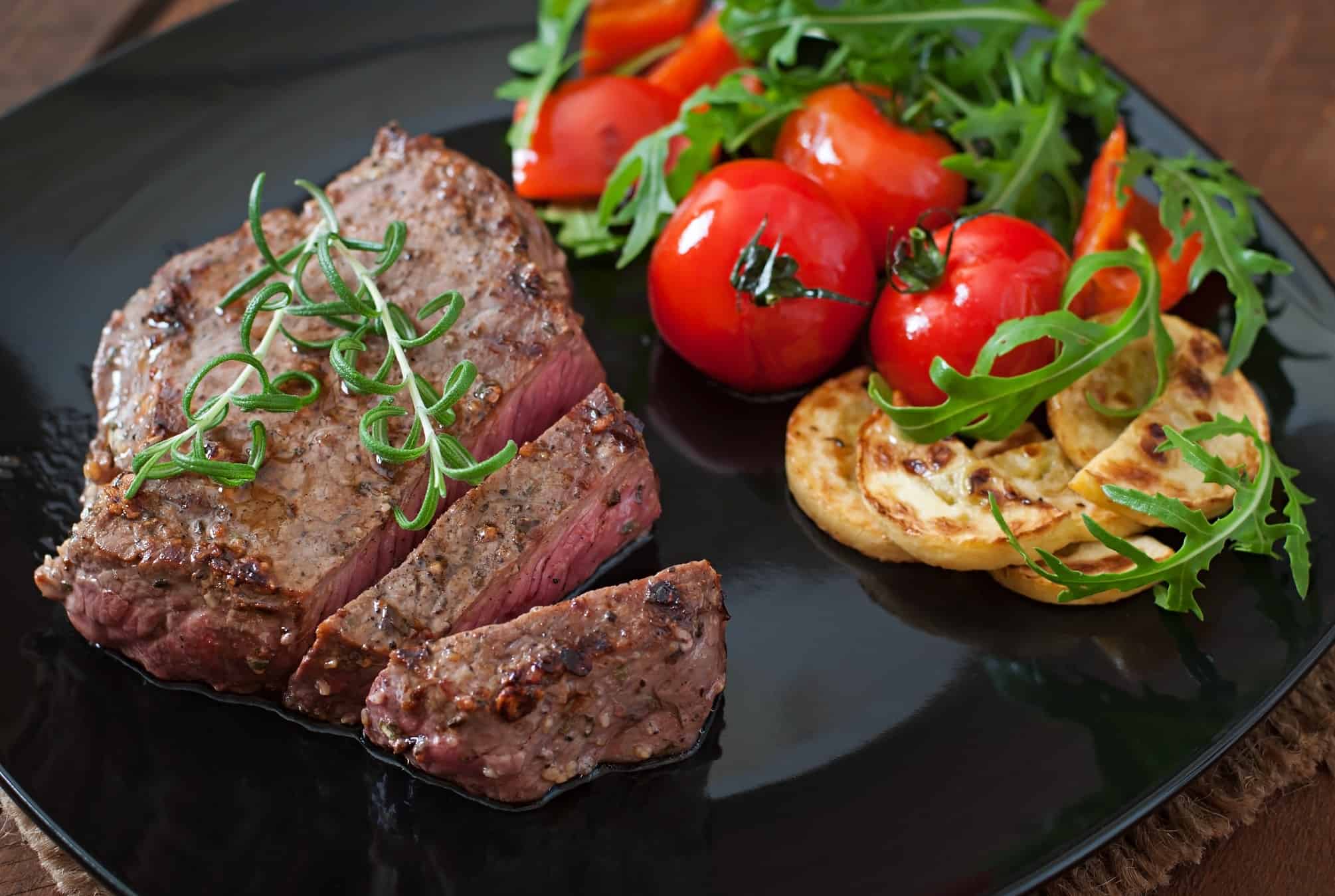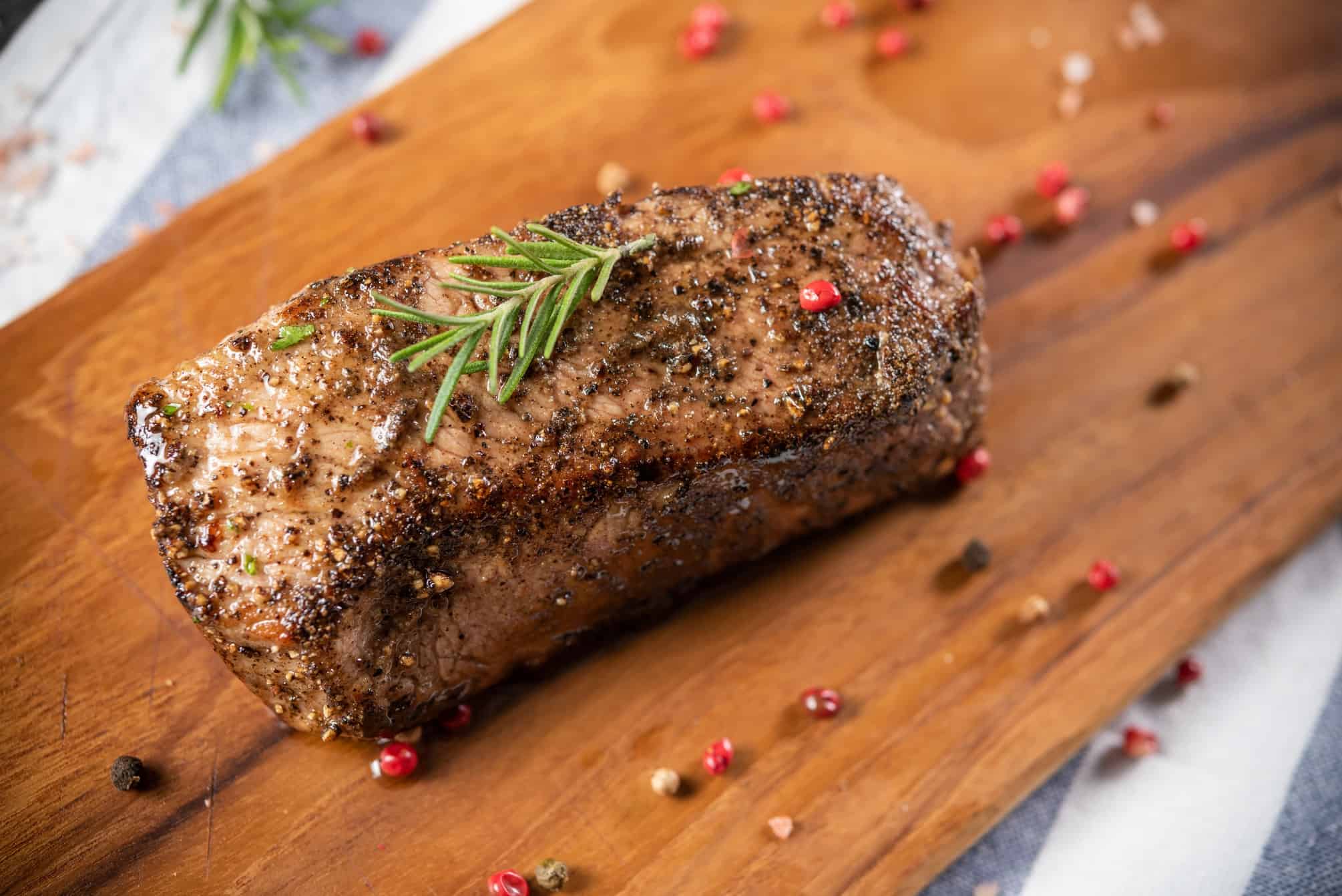Nutrition in 3 Oz Roast Beef
To live a healthy life, it is no doubt that eating healthy is one of the essential keys. According to the food pyramid and dietary guidelines, your diet should include a mixture of fruits, vegetables, grains and meat.
Talking about meat, do you know amongst the great number of meat products available in the market, roast beef continues to be one of the most commonly consumed meat products? Statistics indicate that the yearly consumption growth rate of roast beef has been on the rise. In this article, we will explore more about the delicious and nutritious roast beef.
Roast beef is considered as a staple food, side dish and even appetizer in many parts of the globe. It contains rich source of proteins, other essential nutrients as well as plays a key role in boosting energy levels and facilitating the smooth functioning of the human body.
Wondering how many calories roast beef contains? Is roast beef healthy to consume? Does the consumption of roast beef bring harmful or negative side effects? Well, you are certainly at the right place. Here are all the details you need to know about roast beef.
NUTRITION FACTS OF ROAST BEEF

According to the US Department of Agriculture, 3 ounces (84-gram) of roasted rib roast contains the following nutrients:
- Calories: 300
- Protein: 19 grams
- Total Fat: 24 grams
- Sodium: 55 milligrams
- Potassium: 249 milligrams
CALORIES
Human body needs calories to survive. Calories in foods provide energy in form of heat for normal body functioning. It is always advisable to balance your calorie in and calorie out for a healthy life.
Different parts of roast beef have different calorie count. As per the statistics published by the US Department of Agriculture:
• There are 180 calories in 3-ounce of roasted round tip beef
• A rib roast beef weighing 84 grams contains 190 calories
• A roasted round eye, round steak has 170 calories for a serving size of 3 ounces
PROTEIN
Red meat contains abundance amount of protein. Roast beef in particular provides significant amount of quality protein and contains all the essential amino acids.
This helps boost energy levels as well as attributes to the growth, repair and maintenance of body tissues, cells and organs. Animal protein found in roast beef is also highly recommended for athletes and bodybuilders to maintain and build body mass. Roast beef of 100-gram has around 23 grams of protein.
FAT
Fat found in roast beef is also known as beef tallow. According to the American Heart association, in a healthy dietary pattern, the total daily fat intake should be 25-35% of calorie intake.
Roast beef is composed of both saturated and monosaturated fats as well as the major fatty acids like palmitic acid, oleic acid and stearic acid. Furthermore, beef also contains conjugated linoleic acid, also found in lamb and dairy products, it fosters overall health and well-being.
A 3-ounce rib roast which is a common method of preparing roast beef, contains 24 grams of total fat and 220 calories from fat.
SODIUM
Sodium is a vital mineral and electrolyte that helps maintain and balance the fluid in the body. It also contributes to proper muscle and nerve function. Health authorities recommends limiting sodium intake to less than 2300 mg per day, that is equal to around 1 teaspoon of salt.
84-gram of roast beef contains up to 55 milligrams of sodium content which may increase if the meat is processed due to the addition of preservatives.
POTASSIUM
Potassium and sodium are a dynamic duo. Both are classed as electrolytes and are essential for life and normal body functioning. Potassium is the key for strengthening muscles and sending nerve impulses to the body.
Red meat, especially beef, is known to be a potassium rich product. A 3-ounce serving size of roast beef contains around 250 milligrams of potassium.
IRON
Red meat is well-renowned as a dense source of iron and roast beef is no different. On average, the recommended daily iron intake for adult men is 8 milligrams per day whereas for women is 18 milligrams of iron.
Iron is an important nutrient for the production of hemoglobin which pumps oxygen to all parts of the body. Iron also aids in maintaining the balance of hormones. By incorporating a slice of roast beef into your diet, you can thus make sure not to miss out on this much needed nutrient for the proper body functioning.
ROAST BEEF PRODUCTS IN THE MARKET
There is a great variety of roast beef products available around the globe. Here are a few popular roast beef products.
Roast Beef Brisket
Roast beef brisket has its roots in the Jewish Cuisine. It is one of the most exquisite and delicious meat dishes served for special occasions including Christmas and Passover.
Beef brisket is a one pot dish prepared by cutting the lower chest area of the cow. It is a tough cut of meat as a lot of muscles and tendons is involved. A variety of herbs, sauces and seasoning ingredients are used to marinate it before cooking at a low temperature for a long period of time. Roast beef brisket is usually served along with vegetables and salad.
Roast Beef Burger
Roast beef burger is a popular menu item in most fast-food chains and eateries. It includes lean cuts of beef, lettuce, tomatoes as well as vegetables topped with a bun. Most often, roast beef burger is accompanied with French fries and various sauces.
HEALTH BENEFITS OF ROAST BEEF CONSUMPTION

Roast beef can be an excellent integration to your healthy diet. Beef is rich is high-quality protein and as well as contains numerous essential minerals and vitamins. Below highlights various health benefits of consuming the delicious roast beef.
1. Builds and Improves Muscle Mass
Protein is essential for the growth and development of bones, cartilage and skin. It also fosters the building and maintaining of muscle mass. Roast beef is a rich source of high-quality protein and contains plenty of crucial amino acids. Consuming roast beef helps promote the building of muscle mass as well as keeps the bones and skeletal system healthy and strong.
Roast beef is a strongly recommended for athletes and bodybuilders as it contains the much needed proteins to boost energy levels and muscle mass. Furthermore, older people are likely to suffer from diseases like sarcopenia due to muscle wastage. This can be prevented by increasing protein intake such as including moderate amount of roast beef into the diet.
Roast beef is among the best protein-rich foods which is needed for optimal health especially as we age. As such, it is worthy to consider and consume suitable amount of roast beef.
2. Prevents Anemia
Anemia is a growing and alarming health issue in many parts of the globe. It is primarily due to iron deficiency, resulting in weakness and tiredness. According to the World Health Organization, anemia affects 1.62 billion people globally, which corresponds to nearly 25% of the world population. It is quite prevalent in both developed and developing nations.
Roast beef is a rich source of iron. Regular consumption of roast beef in moderate is one of the best ways to prevent anemia and treat iron deficiency.
3. Fosters Glutathione Production
Glutathione is commonly known as the master antioxidant which provides immense benefits to the human body. It is among the body's most essential antioxidants that decrease with age.
Glutathione helps protect the body from cell damage, strengthens the immune system, prevents illness as well as reduces the risk of developing chronic diseases. As such, maintaining high glutathione levels is vital for overall health and well-being.
Beef contains essential nutrients that fosters the production of glutathione. The consumption of roast beef as part of your regular diets would encourage glutathione and amino acids production, hence offering greater immunity and strength against illnesses and diseases.
QUESTION: DOES ROAST BEEF AIDS WEIGHT LOSS?

Beef is a protein-rich food which is incredibly filling. Consuming roast beef in moderate amount tends to make people full and lose appetite to eat more. This is helpful for weight loss as it prevents overeating and binge eating.
Roast beef also provides your body with a sharp burst of energy that will encourage you to be more active and move around more. Increased physical activity and movement will also allow you to shed more calories and burn fat which aids the weight loss process.
HEALTH RISKS OF ROAST BEEF CONSUMPTION
Beef, rich in various nutrients and high-quality protein, is among the most widely consumed types of meat. Yet, high consumption of roast beef is linked to numerous health issues. The following highlights three health risks of roast beef consumption:
1. Increases Risk of Cancer
Numerous studies have put forward that consuming red meat frequently is linked with an increased risk of cancer. In particular, over consumption of roast beef is considered to have an adverse effect on human health.
Red meat such as roast beef contains haem which gives the red color. This compound promotes the formation of carcinogenic N-nitroso compounds. Furthermore, when roast beef is cooked or roast at high temperatures, this results in the production of heterocyclic amines and polycylic aromatic hydrocarbons that increase the risk of bowel cancer. This is further supported by the global research report conducted under the Continuous Update Project.
Besides, consuming roast beef and processed meat in large quantities on the long run can lead to colon cancer. As per Harvard Health Publishing, in a five-year study, participants who ate the most red meat were about a third more likely to develop colon cancer than those who consumed the least red meat. Another meta-analysis of 29 studies also concluded that increased consumption of red meat increases the risk of developing colon cancer by 28%.
As such, red meat eaters who consume roast beef more often are indeed at a greater risk of cancer. It is advised to consume more white meat and fish to reduce the risk and promotes overall good health and well-being.
2. High Risk of Cardiovascular Disease
Generally red meat, including roast beef, is high in saturated fat which raises the cholesterol levels in blood. High levels of LDL cholesterol tend to increase the risk of cardiovascular disease.
This notion has been backed by US and European Cohort studies that indicate long term consumption of red meat is linked to an increased risk of cardiovascular disease, type 2 diabetes as well as total mortality in both women and men.
In another study, participants who consumed red meat daily equivalent to 8 ounces of steak or two quarter pounds of beef had triple the levels of a chemical linked to heart disease.
These findings reinforce that all ages should follow a heart-healthy eating plan that limits the intake of red meat. Everyone should including a variety of foods like fruits, vegetables, fish, white meat, low-dairy foods, plant-based protein sources for a healthy balanced diet.
QUICK ANSWERS ON ROAST BEEF
How many calories are in roast beef ?
According to the USDA, 84-gram of rib roast contains 300 caories.
Is it okay to eat roast beef every day ?
Regular consumption of roast beef raises the risk of heart disease as well as other diseases. It is recommended to eat in moderate amount. Always consult your doctor or medical professional before making any significant changes to your diet.
Is roast beef good for weight loss ?
Consuming lean cuts of roast beef in moderate tends to increase satiety and avoid overeating. This may foster weight loss to a certain extent.
Share the article. Spread the word. Together we make a positive impact to the world.
blossevillecoutiek.blogspot.com
Source: https://www.healthxtips.com/calories-in-roast-beef/